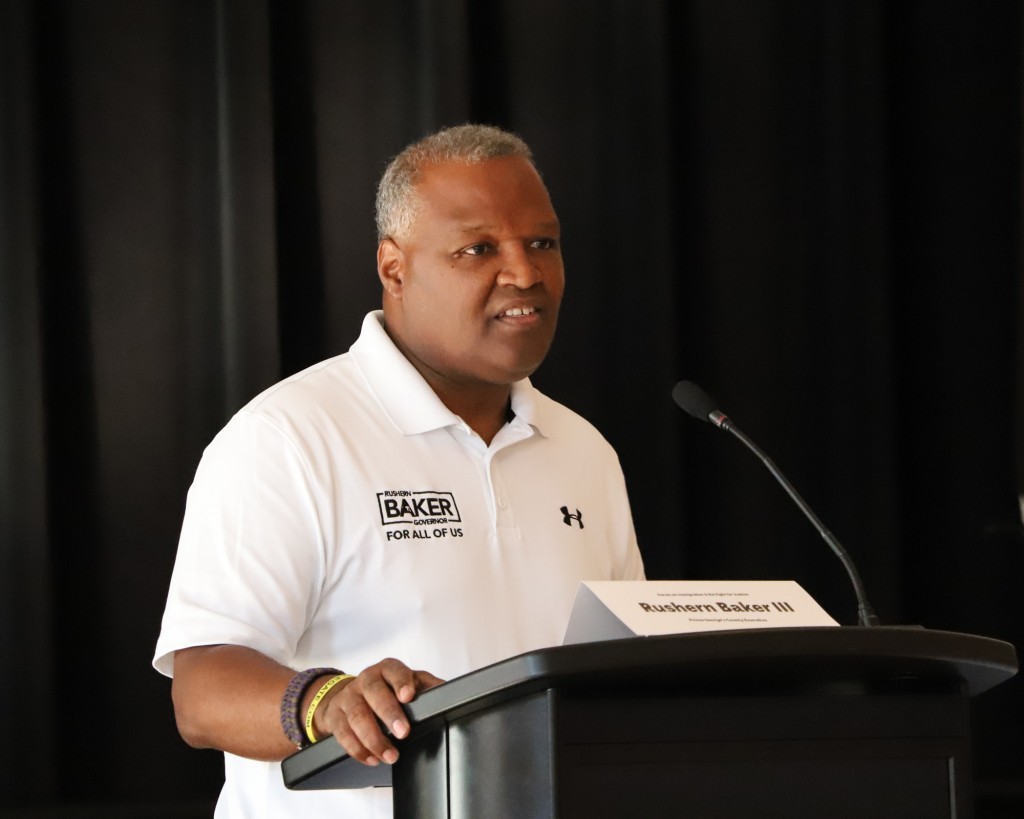Legalizing marijuana is high on the list of priorities for most of the Maryland Democratic gubernatorial candidates, but the two county executives in the race are less eager in their support than their opponents.
Prince George’s County Executive Rushern Baker and Baltimore County Executive Kevin Kamenetz have each stopped short of fully endorsing legalization, even though it has significant support statewide — especially among Democrats.
A 2016 University of Maryland-Washington Post poll found more than 60 percent of self-identified Democrats in Maryland support legalization. According to a Pew Research poll from January, almost seven in 10 Democrats support the policy nationwide.
[Read more: Marijuana is becoming more potent, but also more popular, UMD study says]
At a forum last week, Baker said he supports marijuana decriminalization, but would like to see changes made before he supports legalization. Maryland has already decriminalized the possession of fewer than 10 grams of marijuana, and legalized it for medicinal purposes.
Baker would like to see plans created for expunging marijuana-related arrests and for addressing zoning permits for dispensaries, campaign spokesperson Madeleine Russak wrote in a statement. He would also want to confront banking issues that might impact trade and ensure that minority-owned businesses could participate in the industry, Russak wrote.
“Mr. Baker wants to make sure that the legalization of marijuana happens in a thoughtful way that leads to equity and fairness within all communities,” Russak added.
[Read more: Here’s what UMD students think about marijuana legalization]
Kamenetz has not publicly stated his support for legalization, but called it a “rational next step” after medical marijuana legalization, according to The Washington Post. His running mate, Valerie Ervin, is in favor of legalization.
“We need to legalize marijuana, do not pass go,” Ervin said at a speaking event at this university in March.
Sydney Heise, the president of this university’s chapter of Students for Sensible Drug Policy, said the popularity of marijuana legalization will require Baker and Kamenetz to change their stances.
“The majority of Marylanders will see this as they’re waffling,” said Heise, a junior history major. “As more people ask for it, I’m sure they will change their stance to be fully legal.”
Incumbent Republican Gov. Larry Hogan has not publicly supported marijuana legalization. His campaign office did not respond to a request for comment Wednesday.
Other Democrats in the field have been more direct in their support for legalization.
“It’s been an interesting evolution to watch,” said Kate Bell, the legislative counsel at Marijuana Policy Project, of the gubernatorial candidates’ discussion on the issue.
State Sen. Rich Madaleno (D-Montgomery) supported a constitutional amendment to legalize marijuana pending a ballot initiative, but the bill failed to make it out of committee in the Maryland General Assembly this session. Madaleno said in a statement he is in favor of taxing and regulating marijuana “like any other product.”
“We can use the money for things like workforce development or public education,” Madaleno said in the statement.
Alec Ross, a tech entrepreneur and former State Department official, said he is “100 percent” in favor of legalization in a statement. He and attorney Jim Shea echoed Baker’s call for the expungement of records of anyone with nonviolent minor possession offenses.
Shea believes legalization will “create a more just society” and help fund education, according to a statement from his spokesperson, Kathryn Gilley.
Former NAACP President Ben Jealous has made legalization a cornerstone of his platform for criminal justice reform.
“No credible candidate for governor can claim they support criminal justice reform if they lack the courage to say what we all know, which is that marijuana should be legal for adult use,” Jealous said in a statement.
Krish Vignarajah, former policy director for Michelle Obama, said in a statement that marijuana legalization would lead to a reduction in opioid-related overdoses and open up additional revenue streams to fund education. Like Baker, she said people of color must be included in the economic opportunities that legalization would provide, according to the statement.



